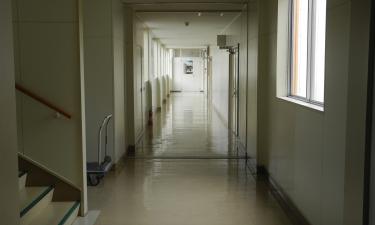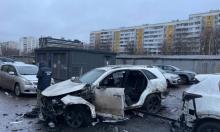Runaway train disaster in Montenegro caused by driver
Investigators believe a "human factor" was behind the train accident in Montenegro that left 44 dead and nearly 200 injured, an official said Wednesday. "The train was in perfect condition," said Ilija Lubarda of Montenegro Railways, who is leading a team of investigators examining the wreckage at the bottom of a steep canyon just north of the Montenegrin capital.
Preliminary investigation indicated that the train driver may have failed to lock the brakes after he left his seat to make an unspecified repair. That set the train in motion without him in the driver's seat. "All indications point to the human factor," Lubarda told the AP, suggesting that "negligence or failure to follow procedure" by the train driver caused the four-car train to run out of control and derail into the 100 meter-(330 foot)deep ravine. He declined to provide further details pending a full investigation into one of the deadliest European rail accidents in the past 25 years. The train driver, who was among the injured, has been placed under police custody in the hospital.
"The tragedy was made worse because many children were on the train," Montenegro's President Filip Vujanovic said Wednesday and urged his tiny republic of 650,000 people to "do our best to help the injured and the victims' families."
At least 300 passengers, many of them schoolchildren returning from a ski trip, were believed to have been on the train when it derailed while descending from Montenegro's mountainous north to the southern, coastal city of Bar.
Lubarda added that the train underwent general maintenance only a few months before the accident. Nevertheless, Transport Minister Andrija Lompar and the head of Montenegro railways, Ranko Medenica, have resigned because of the accident. At least 5 children were among the killed and 32 among the 198 injured, many still in critical condition.
The hardest hit was the northern town of Bijelo Polje, a community of some 35,000 people. Some 24 of its residents were crushed to death. Weeping relatives gathered around wooden caskets brought to the town's sports arena late Tuesday while thousands lined up to offer their condolences to the grieving families, some kneeling beside the coffins.
The disaster overshadowed political issues and tensions. Putting aside differences over Montenegro's bid for independence, Serbian leaders arrived here on Tuesday to express their condolences. Pope Benedict XVI also sent a message of condolences, saying he was praying for the relatives of the victims as well as for the entire Montenegrin people, reports the AP. N.U.
Subscribe to Pravda.Ru Telegram channel, Facebook, RSS!




